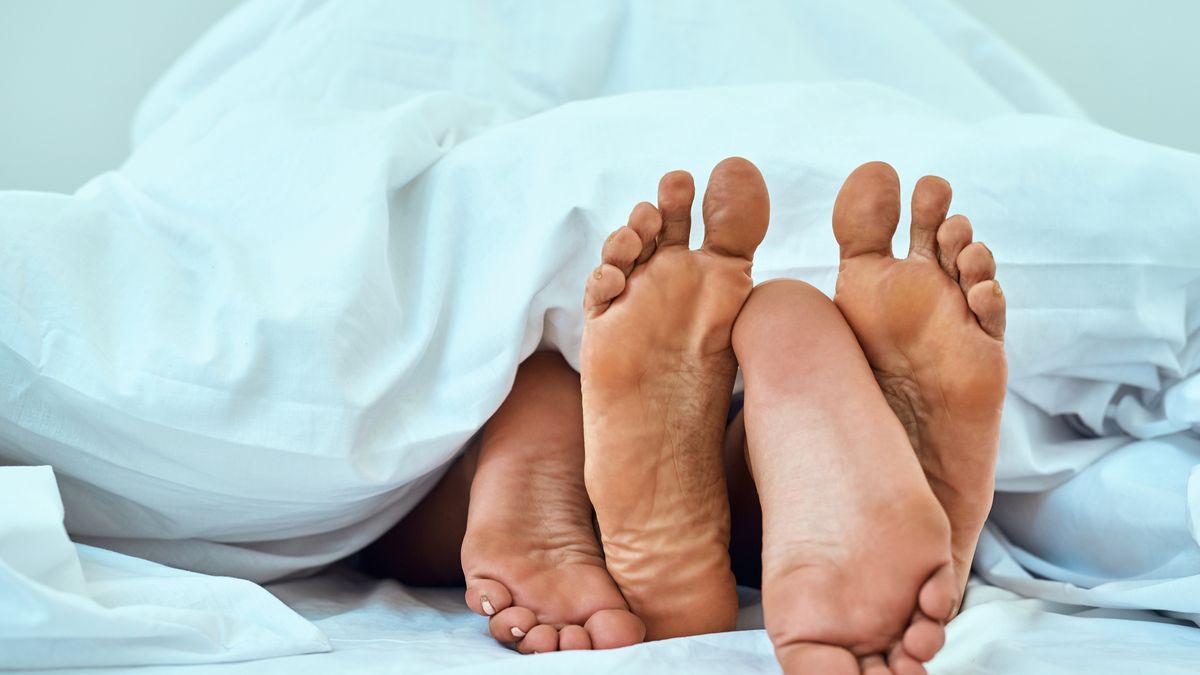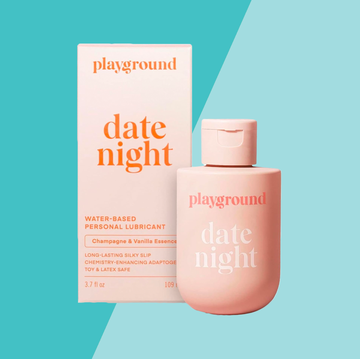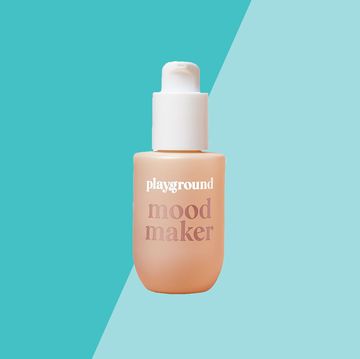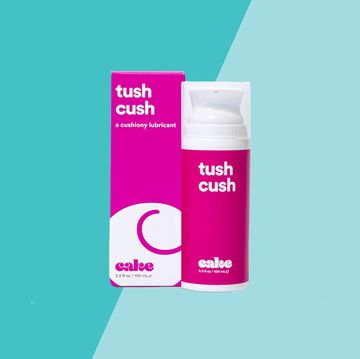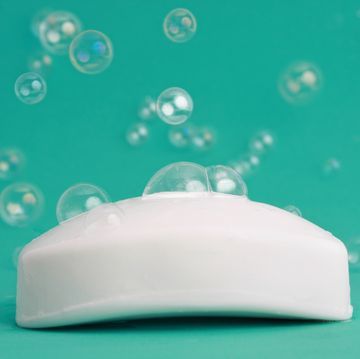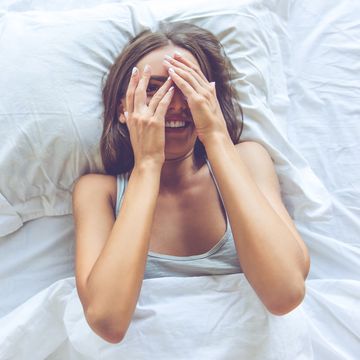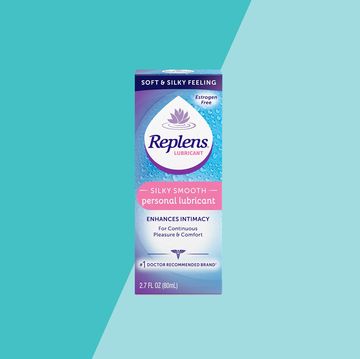If all of a sudden, your libido is low, don’t panic. Despite what steamy rom-coms make us believe, dry spells are totally normal—especially if you’ve been with the same person for a long time. So if you’re wanting to know how to increase your sex drive, you’re not alone.
In fact, 48% of premenopausal women report a lower sex drive than they previously had—a problem that 67% of women are worried isn’t taken seriously, according to a 2016 national survey published by the American Sexual Health Association.
Meet the Experts: Stephanie Buehler, Psy.D., a sex therapist at California’s Hoag for Her Center for Wellness; Stephanie S. Faubion, M.D., director of the Women’s Health Clinic at the Mayo Clinic; Leah Millheiser, M.D., clinical assistant professor of obstetrics and gynecology at Stanford Medicine; Mary Jane Minkin, M.D., a board-certified ob/gyn and clinical professor of obstetrics, gynecology, and reproductive Sciences at Yale University School of Medicine; Sherry Ross, M.D., women’s sexual health expert and author of she-ology and the she-quel.
Thankfully, there are ways you can remain in control and increase your sex drive, and many are very simple.
How can I increase my sex drive?
However, if you’re on a seemingly endless hunt for “the mood” and it’s starting to mess with your relationship and personal happiness, there are several science-backed strategies that can help:
Be more mindful
Experts theorize that your libido could boil down to a balance in brain chemicals. There are some neurochemicals that get you amped up for sex, like dopamine, oxytocin, and norepinephrine, says Stephanie S. Faubion, M.D., director of the Women’s Health Clinic at the Mayo Clinic. Then there are others, like opioids and serotonin, that can get in the way and inhibit your excitement.
That’s where mindfulness exercises—like focused breathing or meditation—come in. “Being more mindful might alter the balance of brain chemicals in a good way,” Dr. Faubion says. A 2017 review of research found that mindfulness-based therapy worked to improve sex drive in women. The practice also aids in reducing stress hormones, which are known to cause low libido.
Try 15 to 20 minutes of meditation a day to start. In the heat of the moment, try syncing your breathing with your partner’s or focusing on what they smell like, suggests Leah Millheiser, M.D., clinical assistant professor of obstetrics and gynecology at Stanford Medicine. “This brings you back to the room instead of going through the motions while your brain is somewhere else.”
Take your time with foreplay
Most people dive right into sex, but at least 15 to 20 minutes of foreplay is crucial for building sex drive, says Stephanie Buehler, Psy.D., a sex therapist at California’s Hoag for Her Center for Wellness.
Once you spend some time kissing and touching, your desire will spike both emotionally and physically. You’ll not only feel more connected to your partner, but your vagina will work on producing lubrication to make sex feel more pleasurable and enjoyable. (There’s also no shame in using a good lube!) All of this boosts your chances of wanting to do it again.
Try a new sex position
It’s easy to get into a routine when it comes to sex—and hey, there’s nothing wrong with sticking to a position you really enjoy—but if you’re looking to boost your sex drive, consider switching things up in the bedroom with a new position. You may even find a surprising favorite!
There are a mind-boggling number of sex positions out there (including these positions for maximum pleasure), and the act of trying different ones can make doing the deed way more exciting for you and your partner, sparking intrigue and anticipation.
Get to know your body
Here’s a question you may have never been asked: Could you pick out your own clitoris if you saw it in real life? “Many women are out of touch with their own sexuality,” notes Buehler. “That means that they may not connect with sexual feelings or urges.”
The fix? Grab a hand mirror and check yourself out. It’s actually something Dr. Faubion often does with her own patients. “You’d be surprised at how many women have never looked [at their own bodies] or it’s been decades,” she says.
Familiarizing yourself with your anatomy can help you get in tune with your sexuality, Buehler notes. That’s why flying solo can lend a helping hand to your low libido. Vibrators and other sex toys are a great way to explore what you want and need sexually. Masturbating can lead to more sexual fantasies, boost arousal, and help you reach orgasm faster, according to a study published in the Journal of Sex & Marital Therapy.
Skip the wine
While a few glasses of wine can definitely loosen you up and put you in the mood, alcohol actually makes it more difficult for you and your partner to enjoy sex. One study from the University of Missouri at St. Louis found that among 3,000 people who had sex while intoxicated, 11% of them were unable to orgasm and 7% had inhibited sexual desire, with 33% of women experiencing some kind of sexual dysfunction after drinking.
Why does this happen? Alcohol is a depressant and slows the part of your nervous system that controls arousal and orgasm, so even if you and your partner have sex, it may not be satisfying for either of you. So try skipping or limiting the alcohol on your next date night—it may help you cross the finish line.
Stick to a workout routine
You know that amazing rush you feel after an awesome workout? Well, those changes in your body (better cardiovascular health and blood flow) and brain (an uptick in feel-good endorphins) play a role in maintaining a healthy sex drive, research suggests.
Research has shown that women who do moderate to vigorous aerobic exercise see an increase in libido and sexual performance, says Sherry Ross, M.D., women’s sexual health expert and author of she-ology and the she-quel. “During exercise the release of endorphins, the feel-good hormones are released which are responsible for this health benefit,” she explains.
“All of those things lend themselves to a woman wanting to engage in sexual activity because she feels good about herself,” says Dr. Millheiser. “Sex isn’t just about desire. It’s about body image, self-esteem, and confidence—and exercise boosts all of those.”
Schedule some alone time with your partner
Good sex should be spontaneous and just happen, right? Not always. “For women, one of the key drivers is emotional intimacy,” says Dr. Faubion.
That’s because sex isn’t just about pushing the right buttons physically—you have to feel turned on mentally, too, research suggests. If you feel emotionally close to your partner, you’re much more likely to want sex. One way to do that? Schedule a weekly date night. (Get creative and try these date night ideas that aren’t dinner and a movie.)
You have to prioritize sex, too. Pick a day of the week or have a cue that only you two know means sex (something like: “I think we need to go out to eat”). The more this intimacy becomes part of your routine, the better. It helps physically, too. If you make an active effort to schedule time for sex, you’ll also boost pelvic blood flow and vaginal moisture, which gives way to increased comfort and (hopefully) pleasure, notes Dr. Faubion.
Talk about sex
...baby. In all seriousness, communication, in general, is tough. Communication about sex? Even tougher. “People have difficulty saying what they like, how they want to be approached, and when they want to be approached,” says Buehler. But you’ll never know if you don’t ask, so open up the convo by discussing sex outside of the bedroom.
Questions like: Why do people have sex? Why do people stop having sex? What are your sexual fantasies? They can all provide insight into how your partner is thinking and allow you to express your thoughts. As you become more comfortable with the topic, these conversations will eventually give way to more intimate topics. This talk should be a two-way street, so you can both gain an understanding of what works—and what doesn’t—in the bedroom.
Make an appointment with your doctor
To get to the root of a low libido, a full check-up with your doctor can help ensure an underlying condition (for instance, a sleep disorder), medication, or a physical complication (for example, post-pregnancy) isn’t to blame. After all, both physical and mental conditions can impact your sex drive.
Vascular issues such as heart disease and diabetes obstruct blood flow all over your body (including down there) and endocrine disorders such as thyroid dysfunction can sink levels of estrogen and testosterone, squashing libido, says Dr. Minkin. Neurological diseases such as multiple sclerosis can also negatively impact vulvar sensation and blood flow.
Mental health plays a huge role in low libido, too. While depression saps energy and alters brain chemicals that could inhibit sex, anxiety floods your system with the stress hormones adrenaline and cortisol. “Sexual functioning, in the context of uncontrolled anxiety, just doesn’t work,” says Dr. Faubion.
And while antidepressants—which pump serotonin into the brain—can sink your libido, untreated depression can actually make things worse, Dr. Faubion notes. It might take a few months of trial and error to find an antidepressant that works for you, but if you think antidepressants are impacting your sex drive, let your doc know, as that can help steer treatment. Therapy and exercise are also beneficial. One 2013 study found that working out for just 20 minutes improved genital arousal problems related to antidepressant use.
Consult a sex therapist
Even if you’re not depressed or anxious, it might be a good idea to see a sex therapist if your low libido is truly bothering you and your partner.
What your family taught you about sex, your religion, or your feelings surrounding aging and sex can all play a role in the way you view sex—and get in the way of enjoying it, says Dr. Faubion.
A therapist can help reconnect you with your own desires and feelings about intimacy. Working with a pro can also help you learn how to better communicate with your partner about sex, so you can navigate the issue together, whether the underlying cause is emotional or physical. You can find a certified sex therapist near you here.
Frequently asked questions
What causes low libido?
Even though it’s common, a low libido can be super frustrating—especially when you’re trying to figure out how to get it back. There are a lot of factors that play a role, says Mary Jane Minkin, M.D., a board-certified ob/gyn and clinical professor of obstetrics, gynecology, and reproductive Sciences at Yale University School of Medicine.
A low sex drive or low libido is the most common sexual complaint affecting millions of women, says Dr. Ross. Here are some factors that could be playing a role:
Stress
Stress not only affects our body physically but also affects our emotions and behaviors, says Dr. Ross. “From the moment you feel emotionally stressed, your body has a series of hormonal changes that create physical reactions,” she adds.
For those suffering from constant and on-going stress, long-term physical and mental medical complications can occur, Dr. Ross adds. “Depression, anxiety, insomnia, weight loss or weight gain, poor concentration, accidents, high blood pressure and heartbeat irregularities are some of the common medical conditions associated with chronic stress.” All of these types of stress-related medical conditions can drop your libido quickly.
Medication
Medications and alcohol can also decrease a sex drive. Medications including birth control pills, antidepressants, anti-anxiety, narcotics and mood alternating drugs can lower sex drive and make having an orgasm difficult, says Dr. Ross. “Allergy medications not only dry up your sinuses but also your vaginal tissue, making natural sexual lubrication challenging as well,” she adds.
Medical conditions
Medical conditions including polycystic ovary syndrome (PCOS), hypothyroidism, pelvic inflammatory disease (PID), endometriosis, perimenopause, menopause, genitourinary syndrome of menopause (GSM), depression, anxiety, chronic stress, diabetes, multiple sclerosis, and chronic pain are the more common conditions associated with a low libido, says Dr. Ross.
Pelvic pain
There are many causes of pelvic pain including endometriosis, a sexually transmitted infection, vaginal dryness, uterine fibroids and positional penetration, says Dr. Ross. “Pain with intimacy is a common reason that flattens sex drive,” she adds. If pelvic pain is causing a low drive, then discussing this with a health care provider will help to identify the cause and treatment options, she notes.
Hormonal changes
Hormonal changes that lower estrogen levels as seen postpartum, in perimenopause, and menopause will affect libido and vaginal lubrication, says Dr. Ross. “The female hormone estrogen plays a key role in women’s sexual functioning as it helps maintain the genital tissue sensitivity, elasticity, secretions and pH and microbiome flora balance,” she explains.
Genitourinary syndrome of menopause (GSM) describes vaginal dryness, burning and irritation and sexual symptoms including lack of lubrication, discomfort or pain with sexual intercourse and urinary symptoms including urgency, pain and frequency with urination, says Dr. Ross. “When estrogen fluctuates or diminishes, physical, emotional and mental changes occur,” she continues. These normal hormonal cycles cause erratic or low levels of estrogen, which have an obvious impact in lowering sex drive.
History of trauma
Any history of sexual abuse and trauma (emotional or physical) can contribute to an aversion or general dislike of sex causing a low sex drive, says Dr. Ross. “A devastating experience that leads to post-traumatic stress disorder may only enable you to feel pain with sex,” she explains. As in dealing with emotional problems, therapy and an open communication with your partner is key to helping resolve issues linked to abuse and trauma, Dr. Ross adds.
It’s important to note that having a low libido isn’t always an issue. If you and your partner are totally fine with fewer romps, then there’s really no need to worry.
How to prioritize your sexual health
Regardless of your age, a person’s sexual health has to be made a priority in life. Be your best healthcare advocate and never minimize a low sex drive or self-pleasure, says Dr. Ross. “Despite life’s expected obstacles and hormonal challenges, a sexual and intimate life reminds you that your body deserves to be celebrated and pleasure may be within an arm’s reach.” Consulting with a healthcare professional who can provide personalized guidance based on your specific needs is the first step to a satisfying sex life, Dr. Ross adds.
When to contact a doctor about low sex drive
If you are struggling with a low sex drive, talking with your doctor is never a bad idea. A healthcare provider can screen for underlying medical concerns—such as vascular issues, endocrine disorders, and neurological diseases—that may be the reason behind your low libido. Further, if you are taking one of the medications that we discussed earlier, it can’t hurt to ask your doctor if adjusting your prescription or dosage may be right for you.
..

Cassie Shortsleeve is a skilled freelance journalist with more than a decade of experience reporting for some of the nation's largest print and digital publications, including Women's Health, Parents, What to Expect, The Washington Post, and others. She is also the founder of the digital motherhood support platform Dear Sunday Motherhood and a co-founder of the newsletter Two Truths Motherhood and the maternal rights non-profit Chamber of Mothers. She is a mom to three daughters and lives in the Boston suburbs.
Madeleine, Prevention’s assistant editor, has a history with health writing from her experience as an editorial assistant at WebMD, and from her personal research at university. She graduated from the University of Michigan with a degree in biopsychology, cognition, and neuroscience—and she helps strategize for success across Prevention’s social media platforms.
